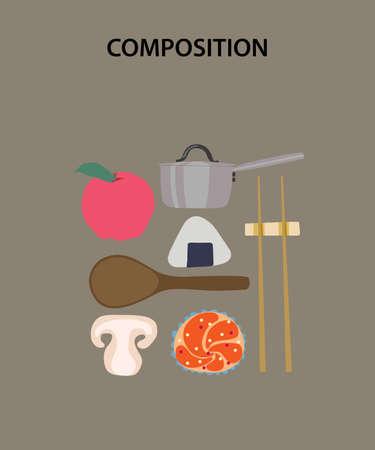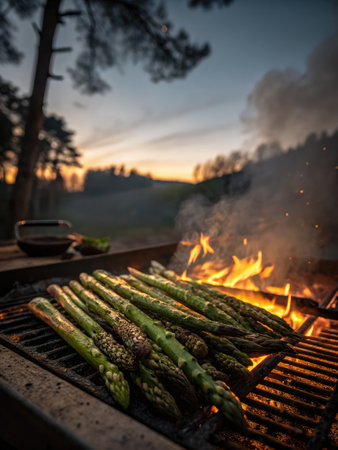Introduction: The Allure of British Seaside Cooking
Few experiences capture the essence of Britain’s storied coastline quite like preparing fresh seafood in the open air. For generations, the British seaside has been a place where culinary tradition meets coastal adventure—think bustling harbour towns, windswept piers, and the bracing tang of salt in the air. From Cornwall’s famous crab sandwiches to Whitby’s classic fish stews, local seafood has always played a starring role in these picturesque settings. This connection between land and sea is not just about what ends up on the plate; it’s about community, resourcefulness, and a deep respect for nature’s bounty. One-pot dishes are particularly beloved among campers and coastal wanderers alike: they’re practical, full of flavour, and perfectly suited to cooking over a campfire or portable stove. As we journey through Britain’s coastal culinary heritage, we’ll explore how simple ingredients, traditional techniques, and a sense of adventure come together to make memorable meals by the shore.
Essential Kit for Campsite Seafood
Cooking seafood by the British coast can be a delight, but it’s essential to pack the right kit for both convenience and safety. Whether you’re camped on the Cornish cliffs or parked up near a Scottish loch, a well-considered set of tools will make your one-pot dishes shine. This practical guide covers the core equipment and supplies every coastal camper should have on hand.
Core Cooking Equipment
British weather can be unpredictable, so durable and reliable cooking gear is key. Here’s a breakdown of must-have items for any seaside one-pot cook:
| Item | Why You Need It | Local Tip |
|---|---|---|
| Sturdy One-Pot (Cast Iron or Heavy-Gauge Steel) | Retains heat for even cooking, perfect for stews and chowders. | Opt for enamel-coated cast iron; easy to clean on-site. |
| Portable Gas Stove or Camping Hob | Essential for consistent heat, especially with wind off the Channel. | Look for models with windshields—vital in breezy spots like Northumberland. |
| Long-Handled Spoon or Ladle | Makes stirring and serving hot dishes safe and simple. | Bamboo or stainless steel handles stay cool; safer for kids helping out. |
| Fish Slice or Slotted Turner | Ideal for lifting delicate fish fillets without breaking them up. | A wide slotted turner works best with local mackerel or sea bass. |
| Lidded Container or Cool Bag | Keeps seafood fresh before it hits the pot, crucial in summer months. | Add a frozen bottle of water—doubles as drinking water as it melts! |
| Heatproof Gloves or Mitts | Saves your hands from hot pots straight off the flame. | Wet weather? Opt for waterproof mitts found at UK outdoor shops. |
Supplies & Safety Essentials
Campsite cooking isn’t just about what you cook with—it’s also about staying safe and keeping things tidy. Here are a few more items not to leave home without:
- Tin Foil: Doubles as a lid, makeshift tray, or helps line pots for easier cleaning after a smoky fire-cooked supper.
- Reusable Plates & Cutlery: British campsites often encourage sustainable practices—bring sturdy gear you can wash up at the communal sinks.
- Bottle Opener/Corkscrew: For that Cornish cider or Sussex sparkling wine enjoyed with dinner by the sea.
- Food Waste Bags: Coastal environments are sensitive—pack out all food scraps to keep beaches pristine and local wildlife safe.
- First Aid Kit: Minor burns or scrapes can happen—better safe than sorry when far from town amenities.
Tried-and-Tested Packing List for British Coasts
| Quick Reference: What to Pack | |
|---|---|
| Main Pot (with Lid) | ✔ |
| Portable Stove & Spare Gas Canister | ✔ |
| Ladle/Turner/Spoon Set | ✔ |
| Cool Bag or Box with Ice Packs | ✔ |
| Tin Foil & Cleaning Sponge | ✔ |
| Crockery & Cutlery (Reusable) | ✔ |
| Bottle Opener/Corkscrew | ✔ |
| Waste Bags & First Aid Kit | ✔ |
Packing Smart for the Elements
The British coast can throw anything your way—from salty spray to sudden drizzle. Opting for robust, easy-to-clean gear means you’ll spend less time fussing over kit and more time enjoying fresh seafood under big skies. With this essential kit sorted, you’re set up for memorable meals wherever your coastal adventure takes you.

3. Choosing the Best British Seafood
When it comes to campsite cooking by the British coast, selecting the right seafood is essential for both taste and sustainability. The UK boasts a remarkable variety of local catches—think plump mussels from Cornish waters, sweet Scottish langoustines, and line-caught mackerel from the North Sea. Prioritising locally sourced seafood not only supports small-scale fishers but also ensures you’re getting the freshest ingredients for your one-pot meals.
Opting for Sustainable Choices
Sustainability should be at the heart of your selection process. Look out for seafood certified by organisations such as the Marine Stewardship Council (MSC), or chat with local fishmongers about their sources. Avoid species that are overfished or caught using damaging methods; instead, favour abundant choices like coley, pollock, and rope-grown mussels.
Seasonality Matters
Just as with fruit and veg, seafood has its seasons. Mussels are at their best from September to April, when they’re plump and sweet. Native oysters are traditionally eaten during months with an ‘r’ in them, while crab and lobster peak through late spring and summer. Opting for what’s in season not only yields better flavour but also helps maintain healthy stocks.
Tips on Checking Freshness
Freshness is non-negotiable when camping by the sea. Look for live shellfish that close tightly when tapped; avoid any with broken shells or off smells. Fish should have clear eyes, bright red gills, and firm flesh that springs back when pressed. If you’re buying direct from a harbour-side market, don’t hesitate to ask about the day’s catch—you might discover lesser-known local varieties perfect for your pot.
Classic One-Pot British Seafood Dishes
There’s something wonderfully nostalgic about classic British seafood dishes, especially when enjoyed fresh by the coast. Cooking these timeless recipes at a campsite doesn’t mean you need to sacrifice flavour or tradition. Below, you’ll find step-by-step instructions for three beloved British seafood classics—seaside chowder, mussel pots, and smoked haddock stew—all reimagined for one-pot, open-air cooking. Each recipe is practical for a camping stove or fire, yet brimming with coastal character.
Seaside Chowder
Ingredients
| Ingredient | Amount |
|---|---|
| White fish (cod or haddock) | 200g, cubed |
| New potatoes | 200g, diced |
| Onion | 1, finely chopped |
| Leek | 1, sliced |
| Cream or milk | 150ml |
| Fish stock cube | 1 |
| Butter | 20g |
| Bay leaf | 1 |
| Salt & pepper | To taste |
Method (Campfire or Gas Stove)
- Melt butter in your pot and gently fry onion and leek until soft.
- Add potatoes and cook for a few minutes.
- Add fish stock cube with 500ml water and bay leaf. Simmer until potatoes are just tender.
- Add cubed fish, simmer gently for 5 minutes until fish is opaque.
- Stir in cream or milk, season with salt and pepper. Heat through but don’t boil. Serve hot with crusty bread.
Mussel Pots (Steamed Mussels with Cider)
Ingredients
| Ingredient | Amount |
|---|---|
| Mussels (cleaned and debearded) | 1kg |
| Cider (dry British style) | 300ml |
| Shallots or onions | 2, finely chopped |
| Garlic cloves | 2, minced |
| Bunch of parsley | A handful, chopped |
| Knot of thyme (optional) | A sprig or two |
| Bread to serve | – |
Method (One Pot Over Fire or Stove)
- Sauté shallots/onions and garlic in a splash of oil until soft.
- Add cider and thyme; bring to the boil.
- Tumble in mussels. Cover pot tightly and steam for 5–7 minutes, shaking occasionally until shells open.
- Toss in parsley before serving. Discard any unopened mussels. Serve straight from the pot with bread to mop up the broth.
Smoked Haddock Stew (Coastal Kedgeree-Inspired)
Ingredients
| Ingredient | Amount |
|---|---|
| Smoked haddock fillet (undyed if possible) | 250g, skinless & boneless |
| Basmati rice (quick cook) | 100g |
| Mild curry powder | 1 tsp |
| Peppercorns & bay leaf | – As preferred – |
| Lemon juice or wedges | – For serving – |
| Easter egg (optional garnish) | – Chopped parsley – |
| Water | 400 ml |
Method (All-in-One Pot)
< ol >
With these easy one-pot methods tailored for British campsite cooking, you can enjoy proper seaside flavours wherever your tent may be pitched along the coast.
5. Modern Twists: British Fusion Seafood Pots
When it comes to campsite cooking, tradition doesn’t mean you have to forgo innovation. Britain’s rich seafood heritage provides a brilliant canvas for modern reinterpretations using both classic and contemporary ingredients. By blending British culinary roots with global influences and fresh coastal finds, you can create one-pot seafood dishes that feel both familiar and exciting.
Reinventing the Classics
Think of the iconic Cornish fish stew or Scottish Cullen Skink, then add your own twist. For example, infuse a classic fish stew with a splash of locally brewed ale or swap out traditional smoked haddock for sustainably caught sea bass. Layer in seasonal vegetables like samphire or wild garlic, commonly foraged along the British coast, to introduce new textures and flavours while honouring the dish’s origins.
Creative Ingredient Pairings
Experimentation is at the heart of fusion cuisine. Try stirring in harissa paste for subtle heat, or finish your seafood pot with a drizzle of cold-pressed British rapeseed oil for a golden touch. For an Asian-British hybrid, add ginger and soy sauce to a cockle and mussel medley, served over pearl barley instead of rice. The key is balancing boldness with respect for the original dish—let the seafood shine while accentuating it with thoughtful additions.
Coastal Inspiration
The UK coastline is a treasure trove of inspiration. Incorporate edible seaweeds like dulse or laver into your pots for depth and umami, or use freshly picked coastal herbs such as sea purslane and rock samphire to garnish. These small touches highlight local provenance and connect your meal directly to the landscape around your campsite.
Encouraging Creativity
Campsite cooking thrives on adaptability. Use what’s fresh from local markets or what you’ve caught yourself—think mackerel landed just hours before dinner, or hand-dug clams from tidal flats. Don’t hesitate to blend in elements from other cuisines; after all, British food culture has always evolved through embracing new ideas. The most memorable one-pot dishes often come from a willingness to improvise while keeping one foot firmly in tradition.
By embracing modern twists on British seafood classics, you’ll not only keep your campsite menu exciting but also pay homage to Britain’s ever-evolving food story—one pot at a time.
6. Campsite Cooking Tips & Safety
Safe Handling and Preparation of Seafood
When camping by the British coast, proper handling of seafood is essential. Always keep raw seafood in a cool bag or portable fridge with plenty of ice packs until you are ready to cook. Avoid cross-contamination by using separate utensils and chopping boards for raw and cooked foods. Rinse shellfish thoroughly with clean, fresh water to remove sand and grit, especially if harvested locally.
Cooking Seafood at Camp
Opt for sturdy, lidded pots or cast iron pans that distribute heat evenly over a campfire or portable stove. British one-pot recipes such as coastal chowder or mussel stew require steady simmering—ensure your fire or stove provides consistent heat. Cook seafood thoroughly: prawns should turn pink, and shellfish like mussels must open fully (discard any that remain closed).
Storage Solutions on the Go
If you have leftovers, cool them quickly and store in airtight containers in your cool bag. Eat within 24 hours to minimise risk. Never leave seafood out in the sun; coastal winds can be deceptive but won’t prevent spoilage.
Minimising Environmental Impact
The British coastline is precious—leave no trace. Collect all packaging, shells, and food scraps; dispose of them responsibly away from dunes and wildlife habitats. Use biodegradable soap for washing up, and avoid pouring waste water directly into streams or the sea. Stick to established fire pits or bring a portable stove to protect the fragile coastal ecosystem.
Respect Local Guidelines
If foraging or fishing, check local regulations before collecting shellfish or crabs. Only take what you need for your meal, respecting size limits and protected species to help preserve marine life for future campers.
7. Bringing It All Together: The British Coastal Dining Experience
After the bubbling pots have simmered and the air is filled with the briny aroma of fresh seafood, it’s time to elevate your campsite meal into a true British coastal dining experience. Creating a memorable feast by the shoreline is all about thoughtful serving, pairing, and atmosphere—embracing traditions while adding your own personal touch.
Serving Suggestions for Campsite Seafood Feasts
For that authentic seaside feel, serve your one-pot seafood dishes in sturdy enamel bowls or classic tin plates. These not only evoke nostalgia but are practical for outdoor eating. Scatter lemon wedges and sprigs of fresh parsley around for a pop of colour and an extra burst of flavour. Provide chunky slices of crusty bread or warm buttered rolls on the side—perfect for mopping up those rich, savoury broths. If you’ve prepared mussels or cockles, don’t forget a bowl for shells and plenty of napkins!
Pairing with Local British Drinks
No British seafood spread is complete without something to sip alongside. Pair your meal with locally brewed ales—look out for malty bitters from Cornwall or hoppy golden ales from Kent, both excellent at complementing robust seafood flavours. For lighter fare like steamed clams or crab, a chilled West Country cider offers a crisp, refreshing contrast. And if you fancy something non-alcoholic, try elderflower cordial or a sharp homemade lemonade to keep things lively and quintessentially British.
Creating Atmosphere by the Shoreline
Set the scene by laying out a simple picnic blanket or a weathered wooden board as your table. Gather some driftwood or pebbles as rustic centrepieces; even a windswept lantern adds charm when dusk falls. Encourage everyone to dig in family-style, sharing stories as well as food—this convivial spirit is at the heart of British seaside gatherings.
Final Touches: Making It Memorable
Above all, enjoy the moment: listen to the waves, feel the salty breeze, and savour each bite among friends. Whether it’s a quick chowder after a swim or a lavish seafood boil at sunset, these one-pot dishes are about more than just sustenance—they’re about celebrating Britain’s remarkable coastlines and creating lasting memories on every adventure.

